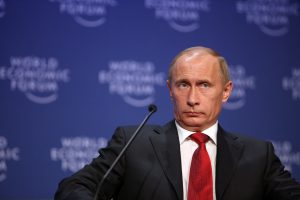For God’s sake, when will we see it? When will we stop parroting that the Union is disintegrating and dying, even though it may be embarking on a new and decisive stage in its history?
There was, first of all, the way in which the Central Bank was able to put a clear stop to the panic in the markets. That was a fact. It was remarkable, but only hardcore Eurofans could rejoice in what was only an illusion, and only they could have been able to applaud the suspension of the Maastricht rules, isn’t that right?
I admit that I did, because these budget deficit and debt ceilings were the Union’s great political mistake, given that it is true that there is no growth without investment, no investment without expenditure and that debt is, at the end of the day, one of the conditions for a balanced budget, since it supports activity and tax revenue. The passionate fan of the Maastricht rules that I am was so pleased that there was finally no longer a religion of balance and no more treaties set in stone. Yet, only mindless idiot could ignore the fact that these rules were only suspended and that nothing, fundamentally nothing, had changed as a result.
The fact is, moreover, that neither the one hundred billion euros allocated by the Commission in support of national financing of part-time working, nor the words “European industrial policy” and “European sovereignty” in strategic industries used by the Presidents of the Council and the Commission had attracted much attention.
It was, of course, only rhetoric. Only those addicted to federalism could have let themselves be fooled by this Colbertist and socially sensitive turning point, because semantic illusions aside, the Union is unravelling, and unravelling so much that even when its 27 Heads of State and Government accepted the idea of a European recovery plan financed by a common debt last Thursday, what do people recall from that meeting?
They don’t recall that this plan should bring together at least a thousand billion euros. No. They only take note of the fact that the 27 Member States are still divided over the terms of repayment of this trillion.
Stop it! Enough!
Doubts, I can understand. They have also crossed my mind. They gnawed at me until Thursday, so strong was my fear of the “too little, too late”. But now… The Union is getting ready to borrow and invest together some one thousand billion euros and we still say that the Union is in agony? The Union is finally breaking with the absurdity of arbitrary ceilings on its debts and deficits. The Union is going to borrow jointly when it was forbidden to do so by its Treaties. The Union is putting one hundred billion euros into a pan-European unemployment insurance scheme, thereby creating the social Europe that so many of its Member States did not want and that we no longer dared to hope for. The Union is reacting quickly, both at national and European level. The Union – open your eyes! – is embarking on a third stage in its history, after the common market and the single currency: joint borrowing and investment. The Union – stop denying the obvious just because it bothers you! – is proving equal to a challenge as dangerous as unexpected, and yet, should there be nothing to say and nothing to see apart from that the EU is dying, like so many other lost illusions?
This time, enough is f… enough!
If one wants to express regrets and criticism, he is spoilt for choice. The advocates of a common recovery did not impose early enough the idea that it was not a question of mutualizing national debts but of jointly decided common investments. The result is that we continue to waste precious time in a resurrection of the ancient battle between crickets and ants, Europe of beer and wine, Keynesians and Thatcherians.
France at the helm, these same advocates of a common revival have not yet been able to close this debate by proposing a list of urgent and consensual investments that could already have put us in agreement on the fact that no state would have to reimburse anything to other states, since no one was helping anyone but that we, the 27 of us, were investing for the benefit of us all.
And then there is too much courtesy in all this. It would not be pointless to remind those Dutch leaders who claim to be the embodiment of virtue and who refuse to discuss anything, that the instrument of their prosperity is the single market, and that their tax dumping detracts from the income of the other European States, increasing their difficulties. Politeness is all well and good, but speaking clearly and truthfully is much better than the tartufferies of people who only have virtue in their finery.
All is certainly not won, on the contrary. The scale of the economic crisis will be such that it may still precipitate us into a helter-skelter flight in which our unity would not survive. The violence of the social crisis may put demagogues in charge of some European states without which there would be no Union. The storm is only just breaking but those who have neither eyes to see nor ears to hear are not the defenders of European unity. They are its opponents, those who do not want to see that the glass is three-quarters full and filling up.


